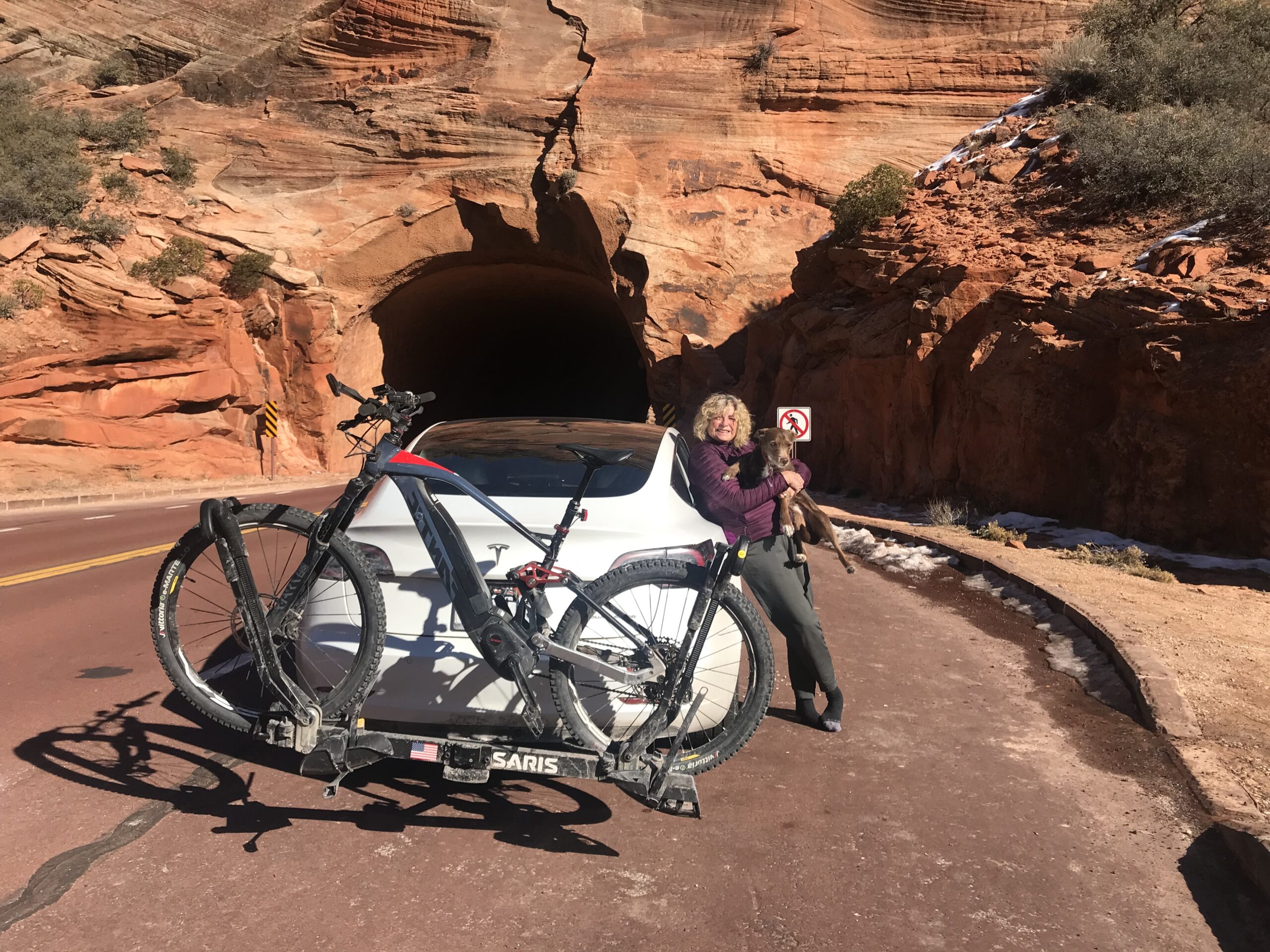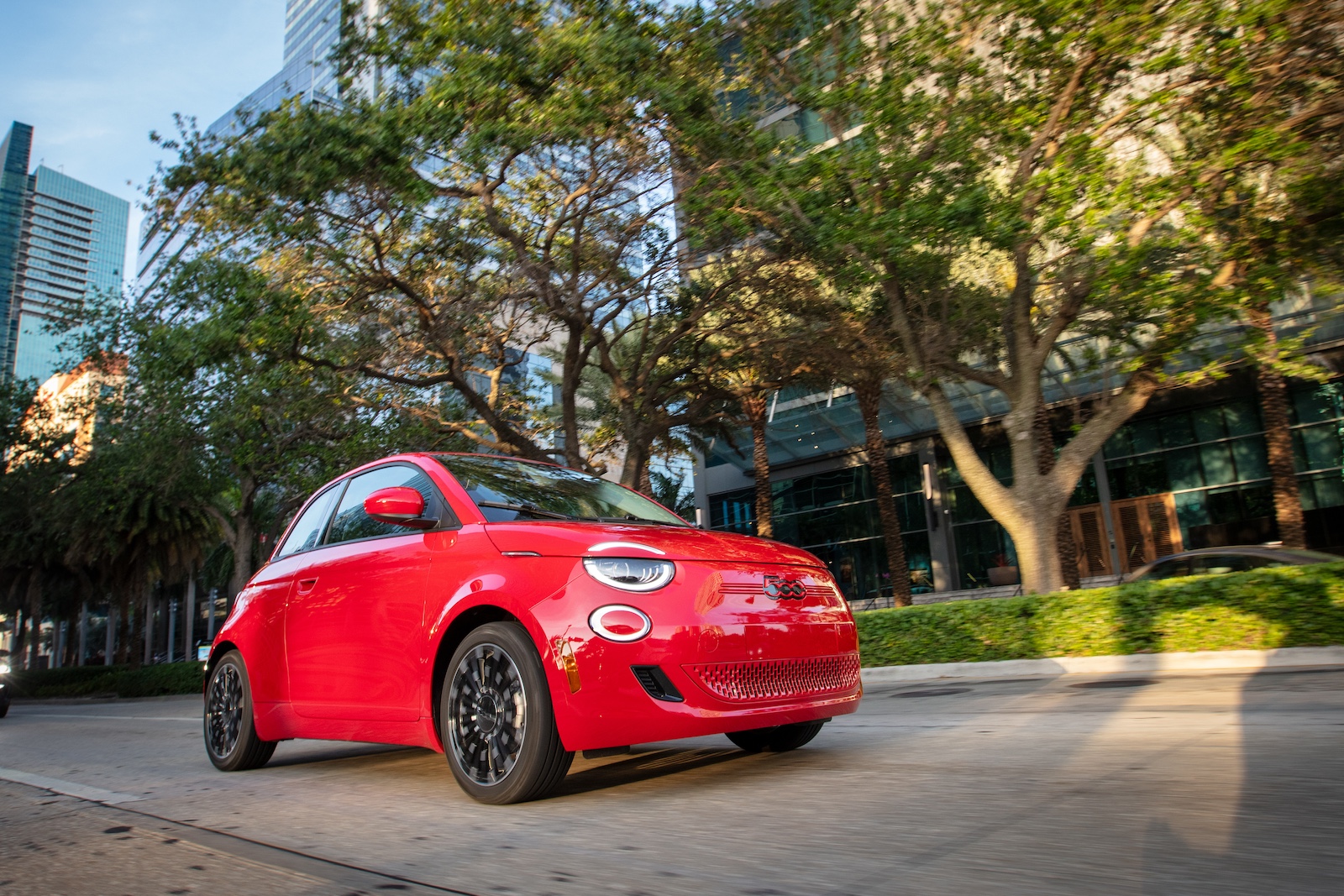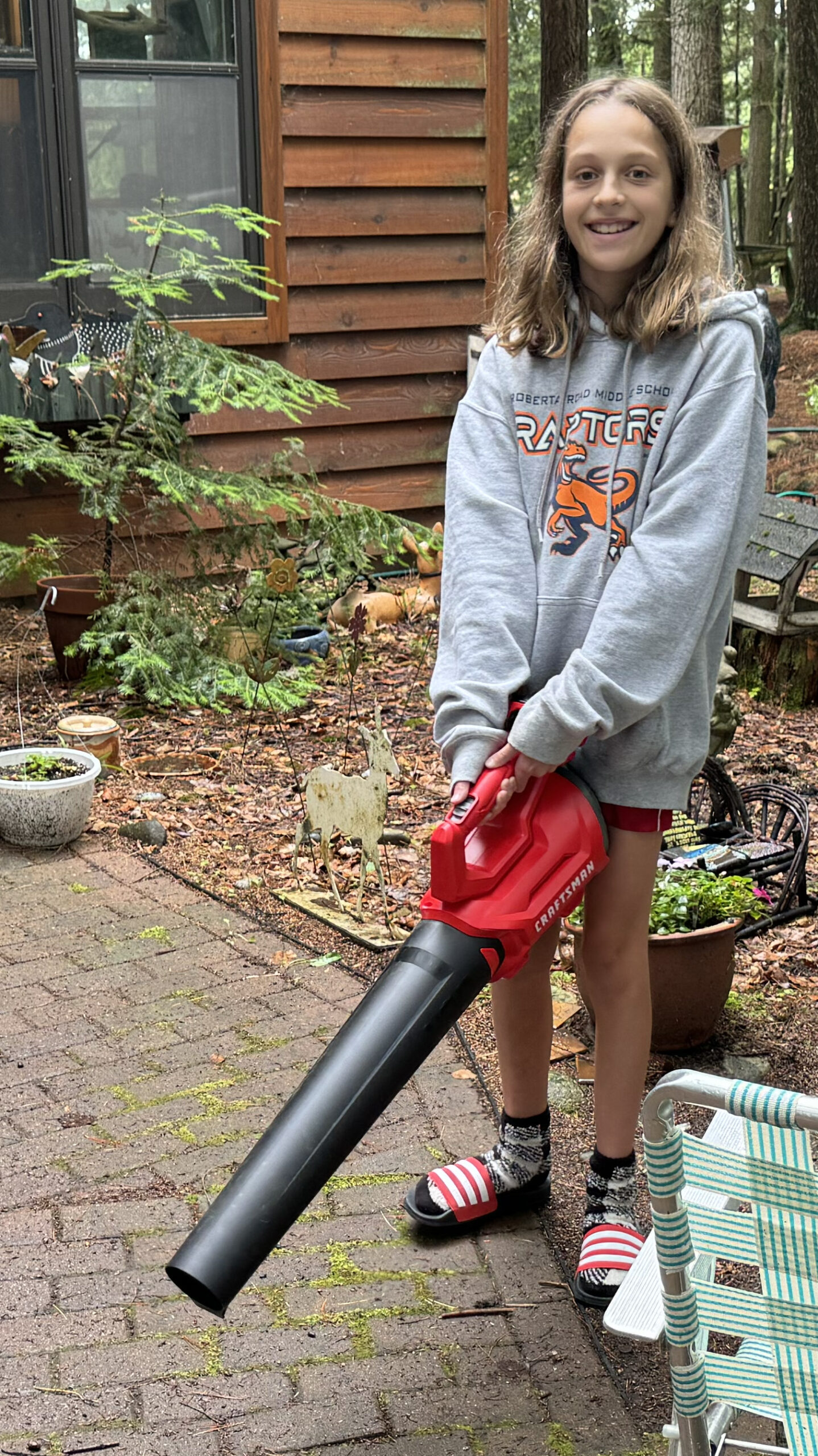Sign up for daily news updates from CleanTechnica on email. Or follow us on Google News!
October 21 was the 4-year anniversary of our dual-motor Tesla Model 3 Long Range (see picture from our 2019 delivery day above). The odometer now reads: 110,860 miles. Please find below my comprehensive review. CleanTechnica Chief Editor Zach Shahan just reviewed his Tesla Model 3 SR+ for its 4th anniversary as well. You can use this article as another data point on the reliability of Tesla Model 3s and what you can expect the car to cost you as time goes on. I haven’t estimated fuel costs, interest costs, resale value, etc. You can read Zach’s article for those costs.
Why we still love our Model 3 after 4+ years and 110,860 miles
I am a huge proponent of green technology, and in particular, electric vehicles. I am also a huge Tesla fanboy! I still get a big kick out of my Tesla Model 3. My previous cars were Chevys, Toyota Camrys, and Nissan Leafs, so my Tesla with dual motors, heated seats, a 12-speaker sound system, etc., etc., etc. feels very much to me like a luxury car. Tesla has completely rethought how automobiles should work, making many things about operating your vehicle better.
My Model 3 accelerates like a rocket and I love having my fueling station in my garage. I get to totally skip the trips to the gas station for a smelly refill. I also totally skip the trips to Jiffy Lube and sitting in their smelly waiting room for a not-so-jiffy hour. A Tesla Model 3 has a gorgeous huge screen where most of the controls are executed. The Tesla navigation using beautiful satellite maps on the huge screen is so good that I don’t miss Apple CarPlay. The big screen is also great for watching Netflix movies and letting my grandkids play games. The sound system is fabulous, and with the music streaming service, I can play almost any song I can think of.
I love using my smartphone as a key that unlocks the car as I approach and locks it as I leave when I am ~15 ft away. There’s no start button. As soon as you touch the brake, your car is activated and ready to go. With numerous software updates over the last 4 years, it feels like I have a new car every month or so. Many Tesla innovations were totally new to the automotive industry. However, many have been copied by other manufacturers by this time — but routinely remotely updating your car’s software like you do with a computer is still a struggle for some (or most) companies.
Full Self Driving (FSD) Beta
I have spectacular Full Self Driving (FSD) Beta, which will drive my car to any location I put in the navigation. In rural Northern Wisconsin where we spend the summers, I can give a voice command for any business or other location in the area and just sit and watch the car steer and navigate even on roads with no yellow or white lines to that location — with no intervention.
However, unfortunately, it still screws up occasionally, so you need to be prepared to intervene instantaneously. Also, it is a little bit too timid, so you need to give it a little help with the accelerator pedal in heavy traffic. However, the steering remains totally automatic. I only need to torque the steering wheel a little or twiddle one of the thumb wheels on the steering wheel to let the system know that I am paying attention. There is also a camera over the rear-view mirror watching my face, so I can’t look away from the road, look at my phone, or shut my eyes too long or the system will complain. It seems to me that the camera system for determining my attention to the road is much superior to requiring my steering wheel twiddling. I hope that Tesla will remove the requirement to touch the steering wheel soon.
FSD Beta has been improved numerous times over the last 2 years. For example:
- It now navigates rotaries (roundabouts) properly some of the time.
- It has stopped trying to make a turn not specified by the navigation at a certain intersection in Orem, Utah.
- It goes around cars and obstacles protruding into your lane.
- It responds properly to construction barrels closing a lane of traffic. However, it still slides into the second (passing) lane on two lane roads when staying in the main traffic lane is the proper response.
Maintenance Costs
Please see my maintenance costs below, which haven’t gone up since my report at 90,000 miles, 22,000 miles ago.
I know that, in principal, EVs are much less complex than cars with internal combustion engines. The internal combustion engine (ICE) rebuild cost is ~$9000. And such engines seldom run over 200,000 miles without that very expensive rebuild or replacement. In addition, ICE cars have very complex transmissions (replacement cost ~$5000). You also have exhaust and emission control systems, radiator/cooling systems, etc., etc., etc. — which EVs do not have.
An EV has a very expensive battery. Do I need to be worried about replacing it? I am treating mine with kid gloves and expect it to last over 10 years and over 500,000 miles. I almost never charge over 80%, and at least ¾ of my charging is done at Level 2 in my garage. However, I have used Tesla’s fabulous faster charging Level 3 Supercharger network often for long cross-country road trips. The EPA range of my car was given as 310 miles when new. When your Tesla is charging you can set the charge limit to 100% and your car will give you a battery range estimate. Mine is reading 285 miles now. 310–285=25 25/310= ~8% battery loss, which is great for 112,000 miles. The drive system and battery warrantee on my Model 3 will run out at 130,000 miles. Therefore, the most expensive components of my car are warrantied for another 18,000 miles. I have solar panels on my roof, so when at my Utah home, I’m driving on sunshine. Driving cross country using Tesla Superchargers, my electricity cost is similar to driving a gas car. However, the heavy EV battery and fabulous acceleration causes tires to wear out more quickly than for an ICE vehicle — so that is an increased cost for EV maintenance.
In 112,000 miles, the total cost of the tires and unforced out-of-warranty repairs for my Model 3 have been $4,646.60. My tires are already wearing thin again, so I expect another big hit for tires soon. This is more than I expected, but probably not more than what I would have paid driving a gas car with costs for repairs, tires, oil changes, emission inspections, brakes, other miscellaneous items, and higher cost for fuel. The big savings will come going forward when the gas car would see those costs repeated, plus muffler, exhaust, and emission control system replacement — and eventually transmission and engine rebuild. If I live long enough, I expect to drive my Tesla over 500,000 miles. It is not unrealistic to expect the electric drive system and battery to last that long.

In the image above, we see my wife with our dog Zuni, our Tesla Model 3, and my ebike on the back at Zion National Park. We spend a good deal of the winter at our daughter’s home in Saint George, Utah, only 40 miles away.
See my itemized service costs through 112,000 miles below. Except for needing another set of tires soon, I have had no additional service costs since 90,000 miles.
Conveniently, I was able to obtain the dates, mileage, and exact cost of my Tesla repairs from the Tesla app on my phone. Not conveniently, it appears to go back only 2 years. Find below what I paid for unforced issues with my car not covered by the warranty.
- I have needed to replace the tires three times. The third set is wearing thin but would normally get me to 120,000 miles. However, with winter approaching I will probably get tires earlier so that I don’t get stuck on my way up the canyon to go skiing. I have paid $578.93 + $565.44 + $1252.23 = $2395.60 for the three sets of tires I’ve bought so far.
- I replaced the cabin air filter for $29.00. The mobile service man didn’t charge for the installation. Also note: the cabin air filter comes as two units. I watched the mobile service man do it and I wouldn’t recommend doing it yourself unless you have the right tools and are very handy with DIY repairs.
- Around April 2020 and April 2021, I had 4 wheel alignments twice ~$280.
- November 3, 2021 — 54,131 miles: Reseal right front upper control arm ball joint (squeaking) $49
- November 3, 2021 — 54,131 miles: 4-wheel alignment $90.75
- July 22, 2022 — 73,149 miles: Remove and replace Superbottle (battery and drive system cooling valve — car wouldn’t go over 50 mph) $672.75.
- February 2, 2023 — 88,705 miles: I had the mobile service man replace the windshield wipers for $23.00. This was a simple operation which most anyone could do themselves.
- February 20, 2023 — 90,029 miles: Remove and replace PTC/cabin heater (car wouldn’t go into drive) $1148.00
Note: Ironically, my Model 3 has an old fashioned 12 volt lead-acid battery that is used to boot the electronics when my car starts up. This battery is supposed to last 4 to 5 years. Mine is still working fine, but I am wondering whether I should change it proactively. [Editor’s note: The car will give you a message on the touchscreen when you need to change the 12V battery, but then you should do it without too much delay. —Zach] I believe newer high-end Teslas are now using lithium-ion batteries for this function. Lithium-ion batteries are more durable and should last at least 10 years.
Repair/Maintenance Cost Summation:
- 3 sets of tires: $578,93 + $565.44 + $1252.23= $2,395.60
- 4-wheel alignment x 3: $370.75
- Replace Superbottle: $672.75
- Replace PTC: $1148
- Replace cabin air filter: $29.00
- Replace windshield wipers: $23.00
- Getting picky: 3 bottles of windshield wiper fluid at $2.50 each for a total of $7.50
- Total: $4646.60
Other Costs
The annual registration in Utah for my 2019 Tesla Model 3 is $318.25. Part of this is the electric vehicle fee of $188. Utah has levied this fee on EV drivers to make up for the fact that we don’t use gasoline and therefore don’t pay the road use tax. Utah offers a mileage-based fee which saves money for low-mileage cars. Mine is high mileage, so I paid the fixed $188 fee.
The Elephant in the Room
I just checked on the cost of my Bear River insurance policy on my Tesla. I was surprised to learn that I am paying $3,089 per year. Therefore, over four years, my insurance cost has been $12,356. This dwarfs the $4,546 I paid for tires and out-of-warranty repairs by a large margin. It’s clear that if I thought buying an expensive electric car would be saving me money, I’ve been sadly mistaken.
Please add your experiences with repairs on your Tesla vehicles in the comments section below.
If you find any of my articles helpful to you, please use my referral link: https://ts.la/arthur73734 (be sure to use it when you make your order). If you are buying a new Tesla and use my link, you’ll receive $1000 off your purchase price for Model S or X, or $500 off for Model 3 or Y. You will also get 3 months of Full Self-Driving (FSD Beta), which will drive you automatically to any address you enter into the navigation. (Just be prepared to intervene immediately if it screws up!)
Have a tip for CleanTechnica? Want to advertise? Want to suggest a guest for our CleanTech Talk podcast? Contact us here.
EV Obsession Daily!
I don’t like paywalls. You don’t like paywalls. Who likes paywalls? Here at CleanTechnica, we implemented a limited paywall for a while, but it always felt wrong — and it was always tough to decide what we should put behind there. In theory, your most exclusive and best content goes behind a paywall. But then fewer people read it!! So, we’ve decided to completely nix paywalls here at CleanTechnica. But…
Thank you!
Iontra: “Thinking Outside the Battery”
CleanTechnica uses affiliate links. See our policy here.




